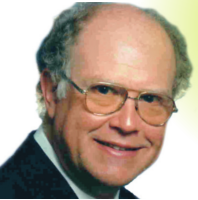Lessons learned from a truly great teacher
Excellence is one of those words we just don’t believe any more. When an organization tells us how excellent they are, they usually aren’t, and it’s very apparent. And, of course, there’s always the insufferable bore who tells us how good he or she is, but again, they usually aren’t.
In my experience, the very best I’ve been fortunate to meet and/or become associated with are humble. They never tell us how good they are. They let their products and/or services speak for themselves, and it’s their customers, the beneficiaries of their products and services, who tell us how good they are.
For example, I just attended the wake of one of my high school teachers. Why would I do that? Guess what? The wake was mobbed with his former students.
When I approached the family to pay my respects, I said, “You’re probably going to hear this a lot. I’ve been blessed to have a lot of great teachers, but Mr. Hayes was the best!” And I was right. They had already heard it several times.
Warren Hayes went to Central Catholic High School in Lawrence, Mass. He went on to Boston College and came back to Central as a teacher for 41 years until he retired.
At Central, I was no angel, yet I never misbehaved in Mr. Hayes’ class. Neither did anybody else. We had no idea what the penalty for misbehaving might be; we weren’t even curious. We had too much respect for the man to even consider dishonoring him in any way.
I told his family the most familiar phrase I remember is, “On your feet to the rear!” They immediately busted out laughing. Mr. Hayes’ lectures were really dialogues. He’d say a few things and expect us to fill in the blanks. Few answers were wrong, but if we hadn’t put in sufficient thought, they were inadequate. “On your feet to the rear!” We had to stand in the back of the class until we provided a better answer to something else.
You see, Mr. Hayes wasn’t just teaching us English and English literature; he was teaching us how to think. He was a perfectionist, very demanding, as he wanted every single one of his students to become the very best we could be.
For instance, he actually got me, and I suspect all of us, to appreciate Ernest Hemingway even before we
read his books. For example, “The Old Man and The Sea” is about a poor
Cuban fisherman who catches a trophy marlin in his small boat. He ties
the fish to the side and sails for home. Then the sharks come, and he
beats them off with his oars. By the time he gets home, all he has left
is the skeleton of a massive fish. All the rest has been eaten by
sharks.
I can’t eat
seafood and have no interest in fishing, yet I was fascinated by that
book. Hemingway was that good, and Mr. Hayes wanted some of that to rub
off on us. I can’t say I’m a great writer, but I can tell you I’m a lot
better than I otherwise would be because of Mr. Hayes.
Above everything else, this
man loved us. He knew he had only so much time to help us, and he
worked hard to give us the very best he could. When I spoke to the
family after all these years, I was surprised to feel my eyes filling
up. I was ready to cry, and I hardly ever cry.
Mr.
Hayes gave us the very best he had to make us the very best we could
be. If you want a definition of excellence with proof, think of this:
Former students, who could have had him as many as 70 years ago, came to
pay their respects at his wake and funeral. Yes, there were canes and
walkers. It’s easy to use something like that as an excuse, and I
imagine some did, but a lot didn’t. It was just too important to pay
tribute to a great teacher to let anything stand in the way.
Mr.
Hayes, thank you for all you’ve done for us over the years. May you
rest in peace, and may your legacy inspire generations to come.
Ronald
J. Bourque, a consultant and speaker from Salem, has had engagements
throughout the United States, Europe and Asia. He can be reached at
603-898-1871 or RonBourque3@gmail.com.